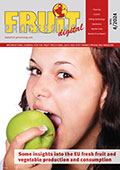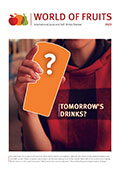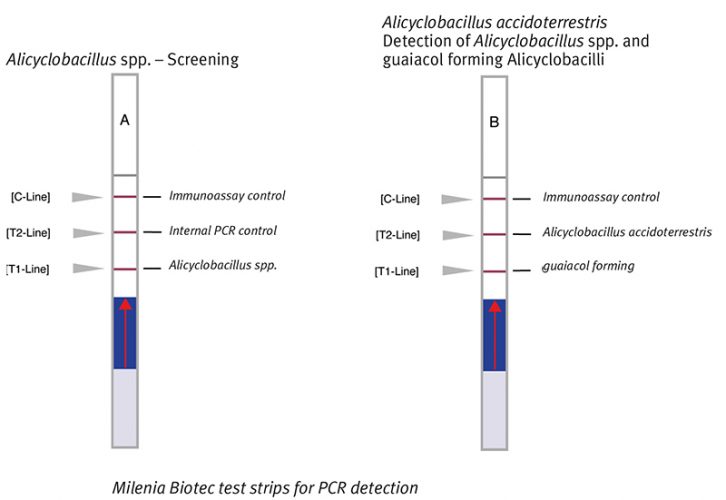Technion students have harnessed viruses found in the environment of fruit trees to prevent spoilage of fruit juices – a phenomenon that causes tens of millions of dollars’ worth of damage each year. The development earned the students from the Technion’s Faculties of Biotechnology & Food Engineering, and Biology, first prize in a competition held as part of the MicroBiome-Push project conducted within “Food Solutions,” an educational program of the European food consortium, EIT Food.
Students from the Faculty of Biotechnology and Food Engineering, and the Faculty of Biology at the Technion earned first place in an international competition held by Europe’s leading food innovation initiative, EIT Food. The students harnessed a bacteriophage – a virus that infects bacteria – to prevent spoilage of fruit juices, a phenomenon causing damage estimated at millions of dollars each year. Professor Marcelle Machluf, dean of the Faculty of Biotechnology and Food Engineering, said, “International projects such as this are the very essence of the Faculty and its way of teaching future generations to think outside the box, to be entrepreneurial, and to broaden the knowledge we are able to provide in the classroom.”
The international competition was held in the framework of the MicroBiome-Push project, which is part of the Food Solutions educational program. The goal was to solve problems in the food sector by connecting companies in the food industry (PepsiCo, Puratos and Agricolus) with undergraduate and graduate students from four universities – the Technion, the University of Turin in Italy, the University of Reading in the UK, and the University of Helsinki in Finland. Nine groups of students competed, including two from the Technion.
The two Technion groups chose challenges posed by the global PepsiCo corporation. The first was to solve the problem of spoilage of fruit juices, while the second was to utilize the potato peels that are left over from the production of potato chips. The groups were accompanied by four mentors from the Faculty of Biotechnology and Food Engineering: Professor Yoav Livney, who headed the Technion’s activity in the project, Professor Yechezkel Kashi, Assistant Professor Avi Shpigelman, and Associate Professor Uri Lesmes. According to the mentors, “The two Technion teams did an amazing job, and despite the limitations posed by COVID-19, they succeeded in creating original, effective solutions. What’s more, they presented the viability of the ideas to the corporations, and showed their inherent business potential.” Members of the winning team, the Microbes, are Itzik Engelberg, Alon Romano, Leechen Mashiah, and Rachel Bitton, and members of the second Technion group, Biomy, are Omer Sabbah, Yuping Kao, Or Shapira, Michael Buzaglo, and Lior Kaufman.
The Microbes chose to address the acute problem of spoilage of natural fruit juices, which in the U,S. alone causes damage estimated at around $32 million each year. The culprit is ACB, or Alicyclobacillus acidoterrestris. This bacterium, found in the ground in which fruit trees grow as well as in all parts of the tree itself, although not harmful to humans, releases a natural substance called guaiacol into the juice, spoiling its taste and smell. This occurs in a broad variety of juices, including orange, mango, pear, grape, tomato, and others, and leads to the loss of large quantities of juice, as well as massive financial losses.
In the course of evolution, the bacterium has developed high resistance to hostile environmental conditions, enabling it to also survive the processes involved in juice production – cleaning, extraction, pasteurization, and filling. As a rule, pasteurization is efficient in destroying bacteria that are harmful to health or adversely affect juice quality. But this is not the case with ACB, since the juice cannot be heated to higher pasteurization temperatures or for a longer time without compromising its quality and nutritional values. PepsiCo has been looking for a creative solution that will prevent this harmful phenomenon.
“Since the problem has its origins in nature – a bacterium that lives in the soil – we looked for a natural solution,” explain doctoral students and team members Alon Romano and Itzik Engelberg. “After all, nature is a ‘laboratory’ that has been perfecting its solutions for billions of years, and our assumption was that solutions that developed in the evolutionary process could also serve us as a solution for dealing with the problem of ACB in the food industry.”
After much searching and numerous analyses, the choice was a bacteriophage, a virus that infects bacteria naturally and in a very specific way. Bacteriophages are abundant in nature, and following strenuous research, the group succeeded in isolating and identifying a bacteriophage that destroys the harmful bacteria. It takes just a small dose to efficiently eliminate the bacteria, and because it does so selectively, it is safe for use and it has no harmful effects on human health.
The competition was held as part of the MicroBiome-Push project since it focused on finding solutions to challenges related to the natural microbiome, the microorganisms populating a particular environment. The microbiome includes bacteriome, virome, and mycobiome (which represent, respectively, the assemblages of bacteria, viruses, and fungi), and the winning solution in fact harnesses a specific virus present in the phytosphere (the microbiome of the plant and its environment) to combat a specific bacterium from that same environment. The fact that this is a natural, inexpensive solution that does not involve genetic engineering is expected to expedite the application of the technology in juices and to reduce the need for preservatives. Moreover, the addition of the virus to the juice does not affect it in terms of religious dietary laws – Jewish (kashrut) and Islamic (halal).
The second Technion group, Biomy, also tackled a far from simple challenge and developed the PotatALL concept, which includes a number of creative solutions for treating potato peels left over in the process of producing potato chips. Team members presented a process to produce from the peels a raw material used to create eco-friendly packaging, as well as a dip made from potato peel. This comprehensive and creative solution also met with the judges’ praise. The intention is for the dip to be served in small packs similar to ketchup, along with fries, and to package it in the eco-friendly packaging made from the peel. The solution provides a perfect way to fully utilize all parts of the potatoes while mitigating the environmental impact.










